Case Study on Moral Status: Fetal Abnormality, Ethical Considerations
VerifiedAdded on 2022/10/09
|5
|1035
|38
Case Study
AI Summary
This case study examines the complex ethical considerations surrounding fetal abnormality and moral status, focusing on a scenario involving a pregnant woman, Jessica, and her husband, Marco, who discover their fetus has a rare condition and potential Down syndrome. The paper explores the Christian perspective on the nature of human persons, emphasizing the belief that life begins at conception and that all human life is sacred. It introduces the Human Property Theory, which supports the moral rights and status of all humans from fertilization. The analysis contrasts the viewpoints of Jessica, Marco, Maria (Jessica's aunt), and Dr. Wilson, highlighting their reliance on different theories to justify their stance on the situation. Jessica, Marco, and Maria adhere to the Human Property Theory, emphasizing the value and dignity of the unborn child. Dr. Wilson, on the other hand, uses a cognitive property theory, suggesting that abortion is a wise decision. The paper concludes by agreeing with the Human Property Theory and asserting that creation is an initiative from God and that His will should be followed. The theory of human properties can support keeping the baby and allow its birth because the physicians have ways of providing healthcare plans for such situations. The case study emphasizes the need to integrate patients' spiritual and cultural beliefs into clinical healthcare plans.
1 out of 5
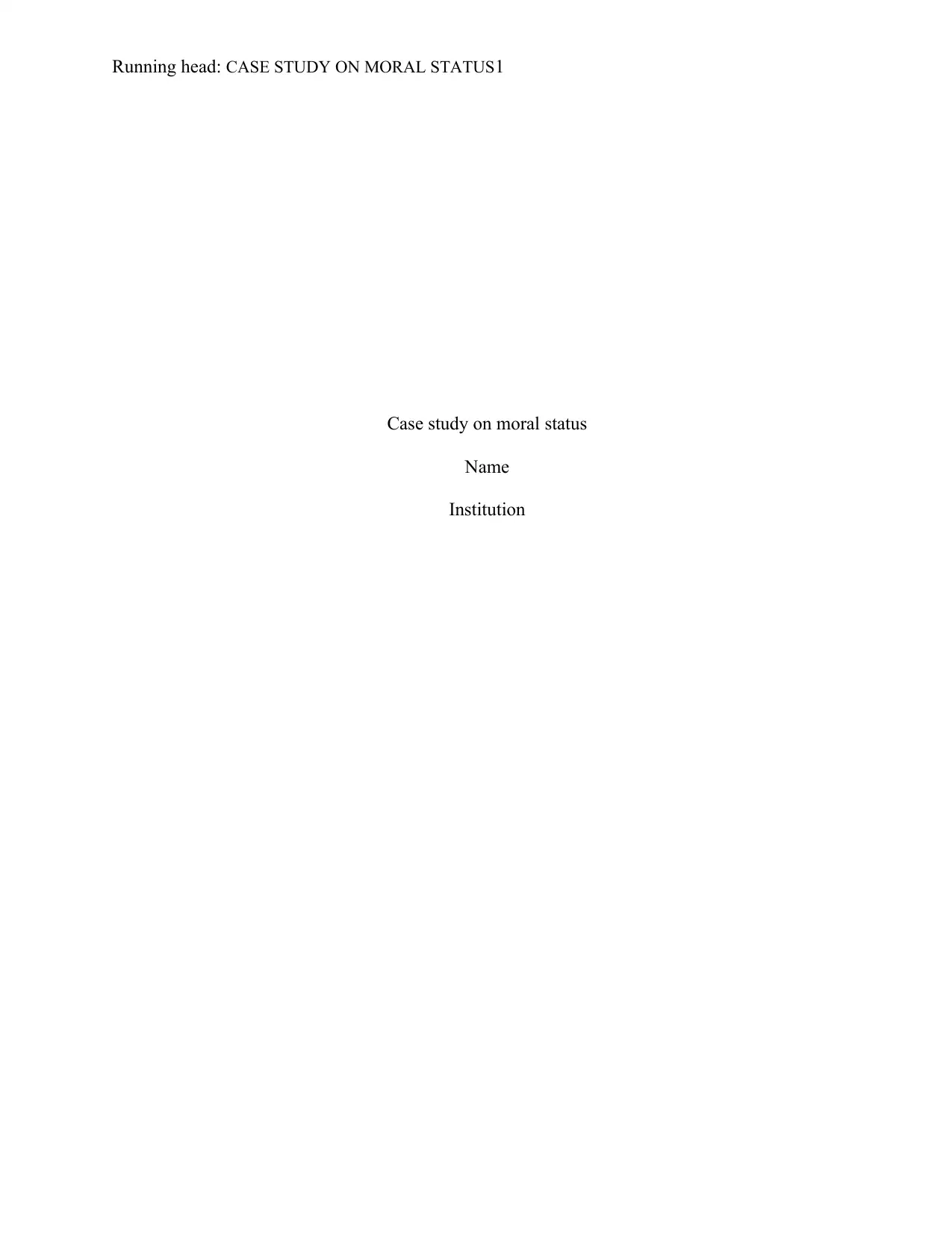
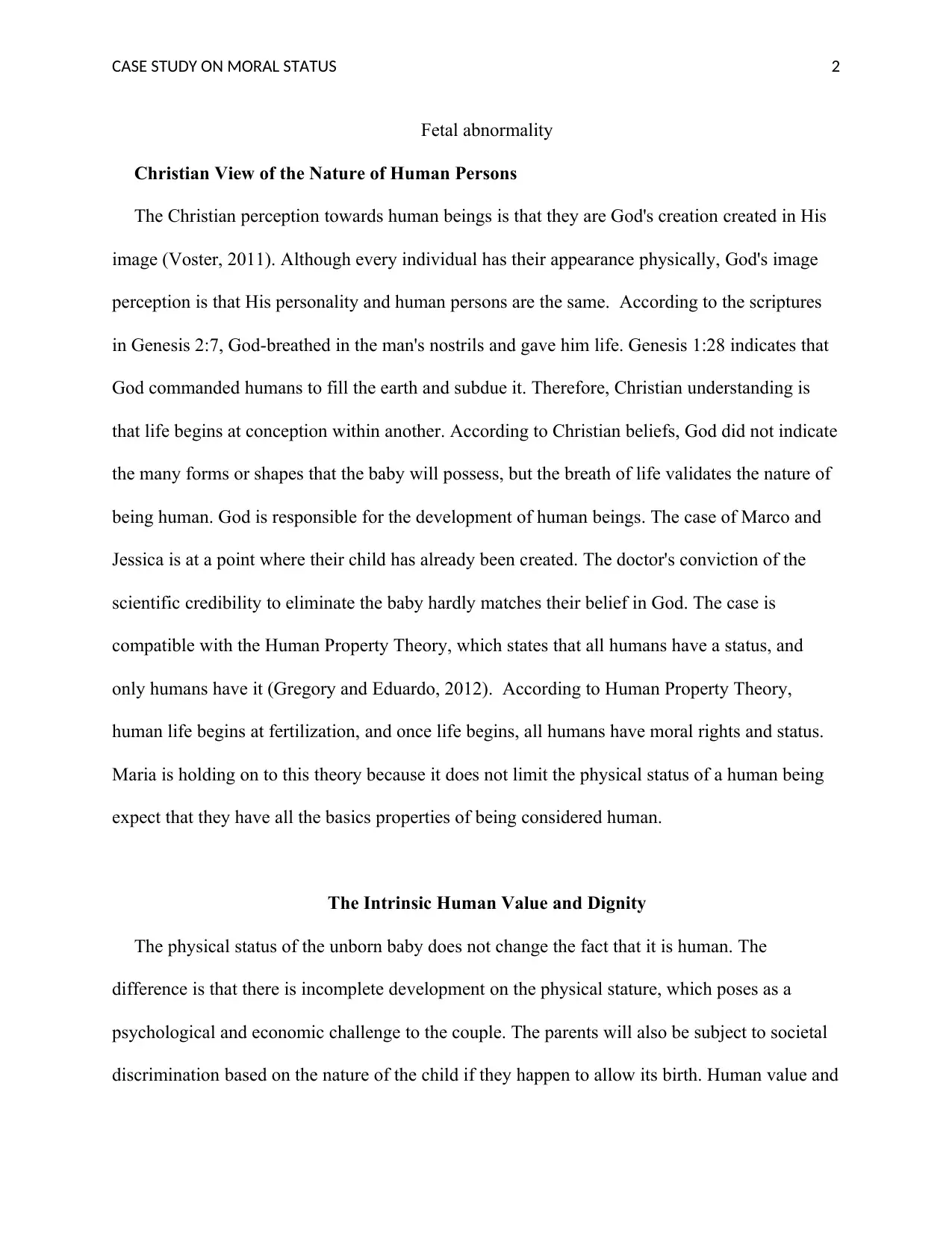
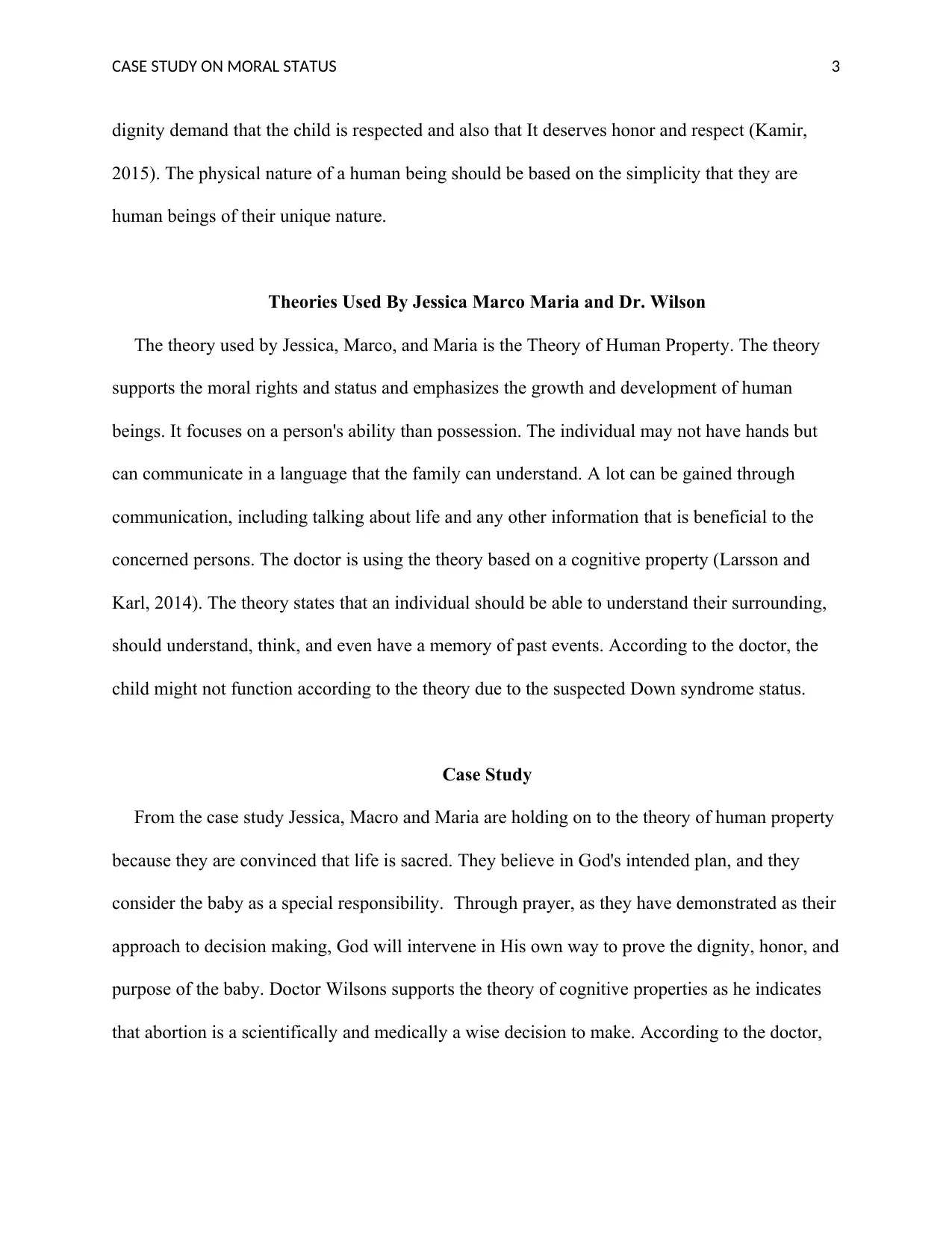

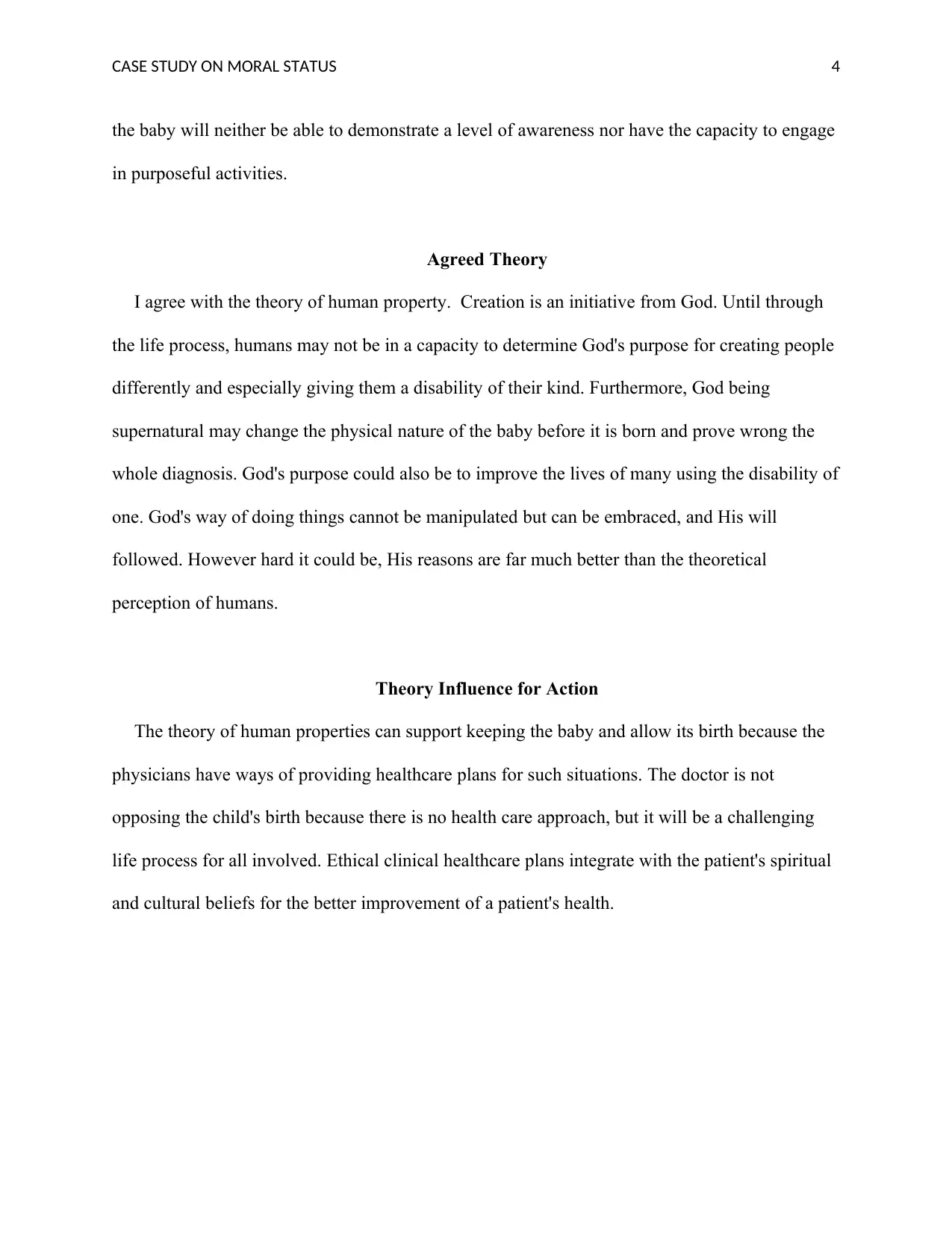
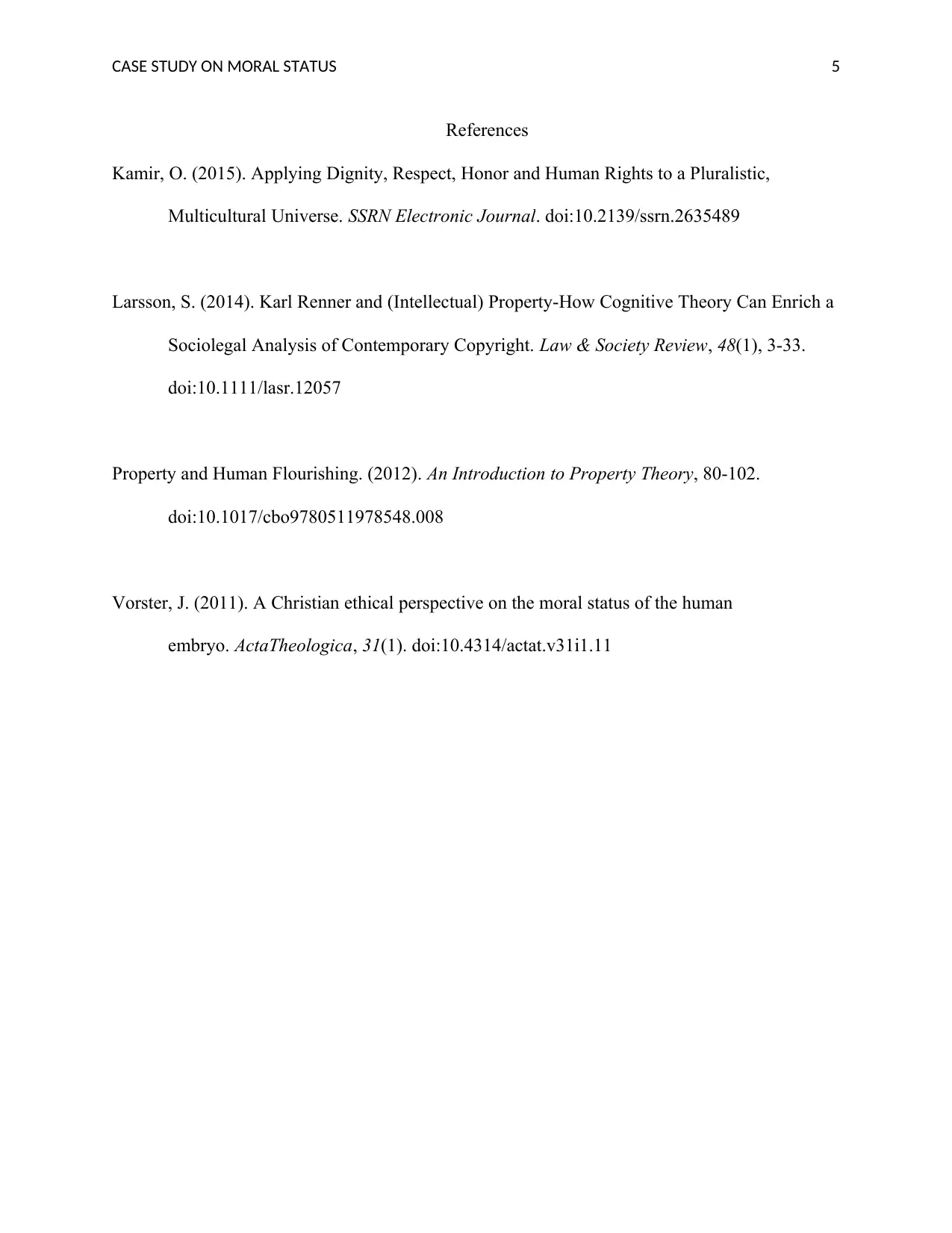

![Case Study: Moral Status of Fetal Abnormality - Course ID [Intro]](/_next/image/?url=https%3A%2F%2Fdesklib.com%2Fmedia%2Fimages%2Fpr%2F8aa0e2425c0e41d9a2d0f13fb6258e83.jpg&w=256&q=75)




![[object Object]](/_next/static/media/star-bottom.7253800d.svg)